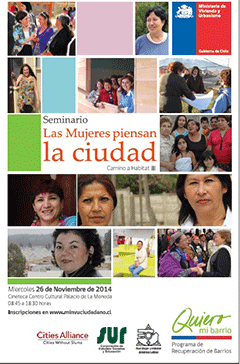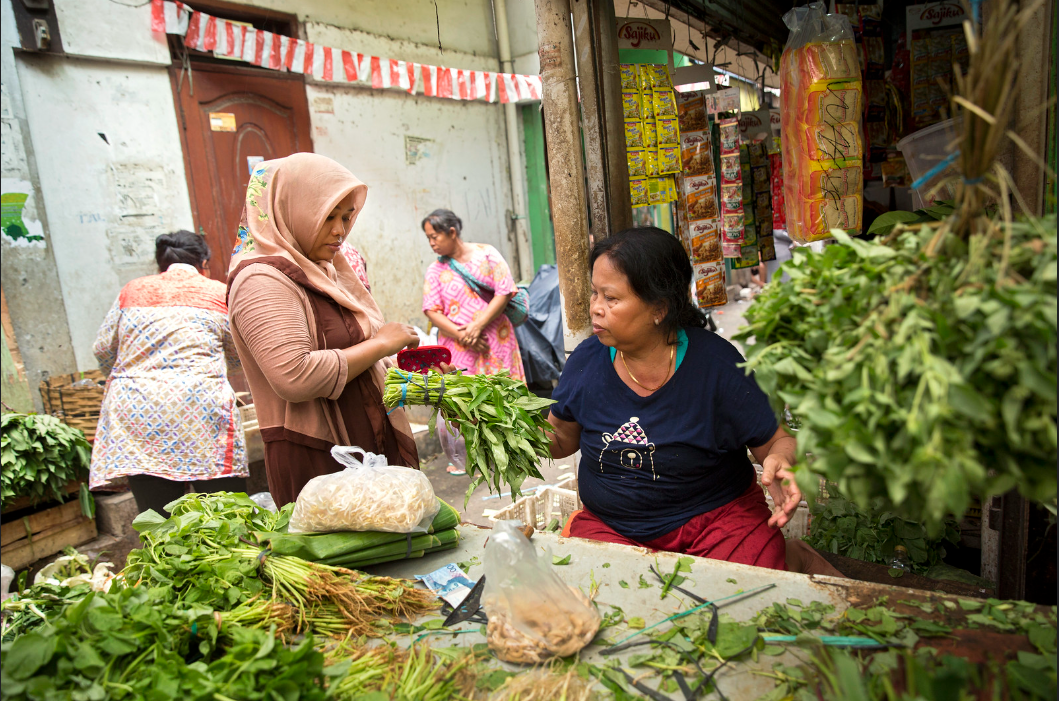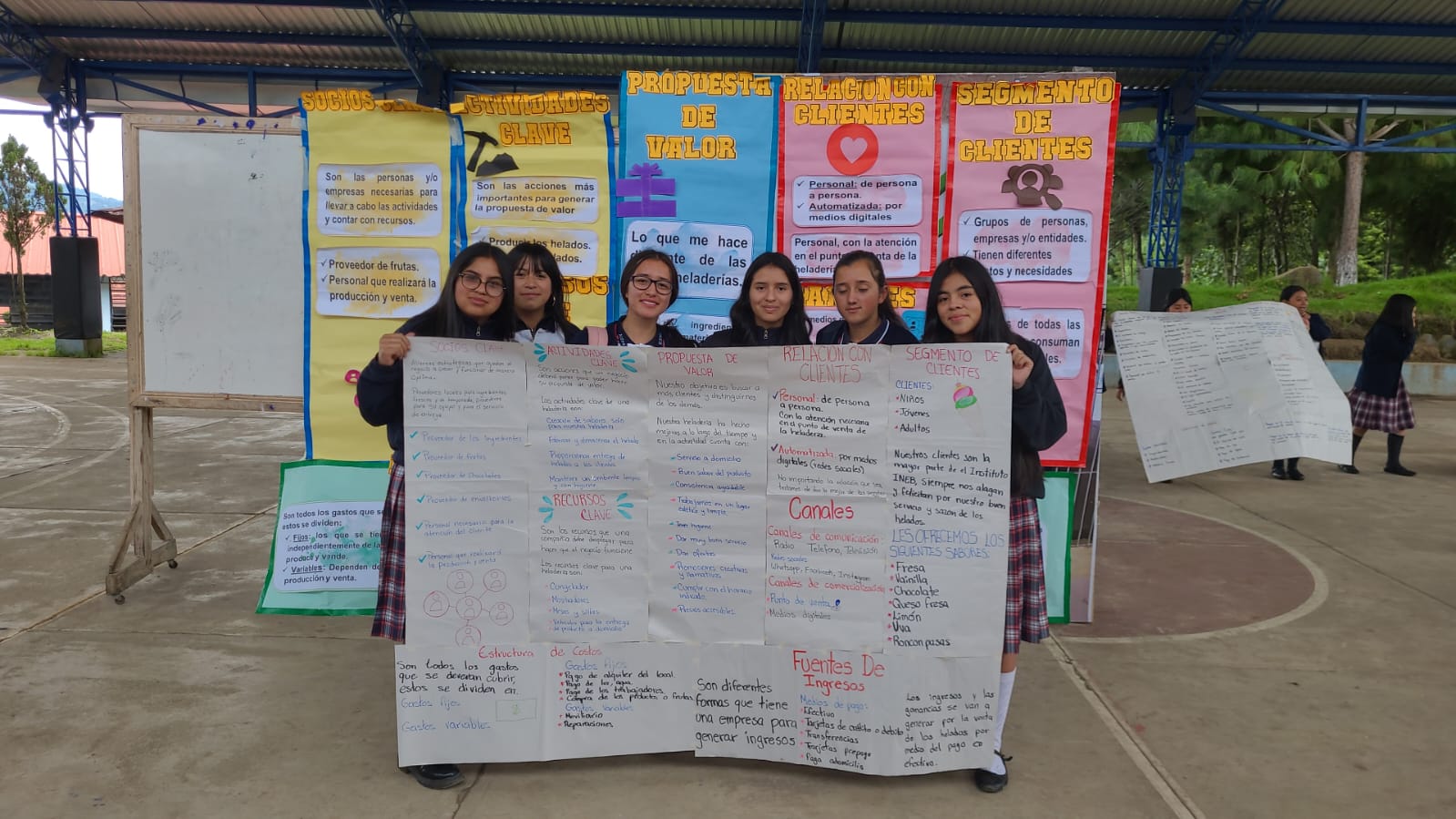|
[2 December 2014] -- Overcoming gender inequality is a fundamental goal towards more equitable and sustainable cities, and how to do so is an important issue that needs to be discussed in the lead-up to Habitat III. In an effort to share the Latin American experience and promote a high quality reflection on the gender dimension in cities, the Chilean Ministry of Housing and Urban Planning, the Chilean NGO SUR, the network Red Mujeres y Habitat en América Latina convened a workshop called Women Think the City 26 November 2014 in Santiago. The Cities Alliance also supported the event – gender equity is one of three main pillars of our Medium-Term Strategy 2014-2016 – and was represented by our Regional Adviser for Latin America and the Caribbean, Anaclaudia Rossbach. The discussion was rich and varied. Civil society organisations that make up a network called Women and Habitat in Latin America shared regional experiences side-by-side with national government and local leaders from Chilean cities and communities. This dialogue was followed by a final conference on a gender perspective of the progressive Brazilian City Statute. Talking about gender in public policy is particularly challenging and at the same time exciting in a country led by a woman president, Michelle Bachelet, with another woman Minister for Housing and Urban Planning, Paulina Saball. Both have had to deal with the contradictions generated by the legacy of inequality that is a typical feature of Latin American cities. With this conference, Chile has made a historic first step towards the global recognition of a gender dimension within national urban policy. It also reflects Chile’s understanding that the cost of unsustainable planning is high, not only economically, but also socially, with an impacts on all urban residents. It is clear a different and new perspective is needed. It is fundamental to strengthen the role of communities with women having a major say and, unlike in the past, a leading role in development. Reflections on gender and city The conference was divided into three main panels:
Minister Saball opened the agenda with insights about hidden identities – women working for their communities and cities, but not yet given the proper role and importance when urban spaces are being designed and planned. According to Ms. Saball, women are key stakeholders in the social contract required by the trifecta of national government, municipality and community for the implementation of Chile’s flagship programme Quiero Mi Barrio, or I want my neighbourhood, a combination of physical and social upgrading of precarious housing developments and neighbourhoods. Júnia Santa Rosa, National Joint Secretary for Housing at Brazil's Ministry of Cities, closed the event by sharing some large-scale concrete experiences in Brazil, demonstrating clearly how public policies such as housing can empower and protect space for women in the cities as citizens entitled to have access to urban services, social networks and economic opportunities. |
|





